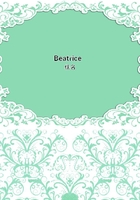
第66章 THE RISING STAR(4)
People of coarse temperament only can find real satisfaction in worldly triumphs, and eat, drink, and be merry, for to-morrow they die! Men like Geoffrey soon learn that this also is vanity. On the contrary, as his mind grew more and more wearied with the strain of work, melancholy took an ever stronger hold of it. Had he gone to a doctor, he might have been told that his liver was out of order, which was very likely true. But this would not mend matters. "What a world,"he might have cried, "what a world to live in when all the man's happiness depends upon his liver!" He contracted an accursed habit of looking on the black side of things; trouble always caught his eye.
It was no wonderful case. Men of large mind are very rarely happy men.
It is your little animal-minded individual who can be happy. Thus women, who reflect less, are as a class much happier and more contented than men. But the large-minded man sees too far, and guesses too much of what he cannot see. He looks forward, and notes the dusty end of his laborious days; he looks around and shudders at the unceasing misery of a coarse struggling world; the sight of the pitiful beggar babe craving bread on tottering feet, pierces his heart. He cannot console himself with a reflection that the child had no business to be born, or that if he denuded himself of his last pound he would not materially help the class which bred it.
And above the garish lights of earthly joys and the dim reek of earthly wretchedness, he sees the solemn firmament that veils his race's destiny. For such a man, in such a mood, even religion has terrors as well as hopes, and while the gloom gathers about his mind these are with him more and more. What lies beyond that arching mystery to whose horizon he daily draws more close--whose doors may even now be opening for him? A hundred hands point out a hundred roads to knowledge--they are lost half way. Only the cold spiritual firmament, unlit by any guiding stars, unbrightened by the flood of human day, and unshadowed by the veils of human night, still bends above his head in awful changelessness, and still his weary feet draw closer to the portals of the West.
It is very sad and wrong, but it is not altogether his fault; it is rather a fault of the age, of over-education, of over-striving to be wise. Cultivate the searching spirit and it will grow and rend you.
The spirit would soar, it would see, but the flesh weighs it down, and in all flesh there is little light. Yet, at times, brooding on some unnatural height of Thought, its eyes seem to be opened, and it catches gleams of terrifying days to come, or perchance, discerns the hopeless gates of an immeasurable night.
Oh, for that simpler faith which ever recedes farther from the ken of the cultivated, questioning mind! There alone can peace be found, and for the foolish who discard it, setting up man's wisdom at a sign, soon the human lot will be one long fear. Grown scientific and weary with the weight of knowledge, they will reject their ancient Gods, and no smug-faced Positivism will bring them consolation. Science, here and there illumining the gloom of destiny with its poor electric lights, cries out that they are guiding stars. But they are no stars, and they will flare away. Let us pray for darkness, more darkness, lest, to our bewildered sight, they do but serve to show that which shall murder Hope.
So think Geoffrey and his kin, and in their unexpressed dismay, turn, seeking refuge from their physical and spiritual loneliness, but for the most part finding none. Nature, still strong in them, points to the dear fellowship of woman, and they make the venture to find a mate, not a companion. But as it chanced in Geoffrey's case he did find such a companion in Beatrice, after he had, by marriage, built up an impassable wall between them.
And yet he longed for her society with an intensity that alarmed him.
He had her letters indeed, but what are letters! One touch of a beloved hand is worth a thousand letters. In the midst of his great success Geoffrey was wretched at heart, yet it seemed to him that if he once more could have Beatrice at his side, though only as a friend, he would find rest and happiness.
When a man's heart is thus set upon an object, his reason is soon convinced of its innocence, even of its desirability, and a kindly fate will generally contrive to give him the opportunity of ruin which he so ardently desires.